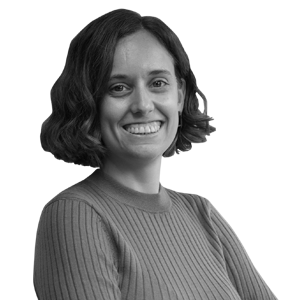The directors of '30 Minuts' on inclusive schools: "We're not questioning the model. We're showing the difficulties."
The journalists argue that the report does not want to question the model but rather wants to propose what needs to be improved.


BarcelonaAfter the AAFAC, the federation that brings together all the associations of families of students from Catalan public schools, show his discontent with the approach of the 30 minutes dedicated to inclusive schools, the report's editors have defended their work. Carla Gracia and Albert Folk assure ARA that they do not question the inclusive school model at any time, but rather want to show the difficulties that exist in implementing it with all the guarantees. When ARA collected the complaints from the AFA of public schools, TV3 declined to comment on the controversy, so the point of view of the authors of the report 30 minutes It didn't appear in the article.
"We believe in inclusive school. We understand it as an inalienable right and an essential milestone for any society that wants to be fair and cohesive. That's why we made The inclusive school, the report broadcast on 30 minutes from TV3: not to question the model, but to honestly show the difficulties that prevent this right from being exercised in a real and dignified manner," argue Gracia and Folk. Both directors emphasize: "As journalists, we had the responsibility to focus on those cases that find no response, no voice, no space to be heard. To point out what needs to be improved to make it a reality," they add.
In their complaint, the AFA of public schools asserted that the approach of the report jeopardized the work done to ensure the community and society understand that the education system is not only a benefit for students with specific educational support needs. Those responsible for the documentary received question it but try to strengthen it. The problem is the lack of resources to make it viable. We are not the only ones saying that: families, teachers, specialists and the General Directorate of Inclusion itself also say so," say the two journalists. In this regard, they indicate that in less than ten years the number of students with special educational needs has doubled in Catalonia (from 15,000 to more than 32,000). The journalists' resources state that they are concerned that the groups and unions that have complained "have focused the debate on the report and not on what it denounces." "Talking about the difficulties is not attacking inclusion. It is defending it. With conviction, with responsibility and with respect for all the people who, for years, have fought to make it possible," they conclude.
